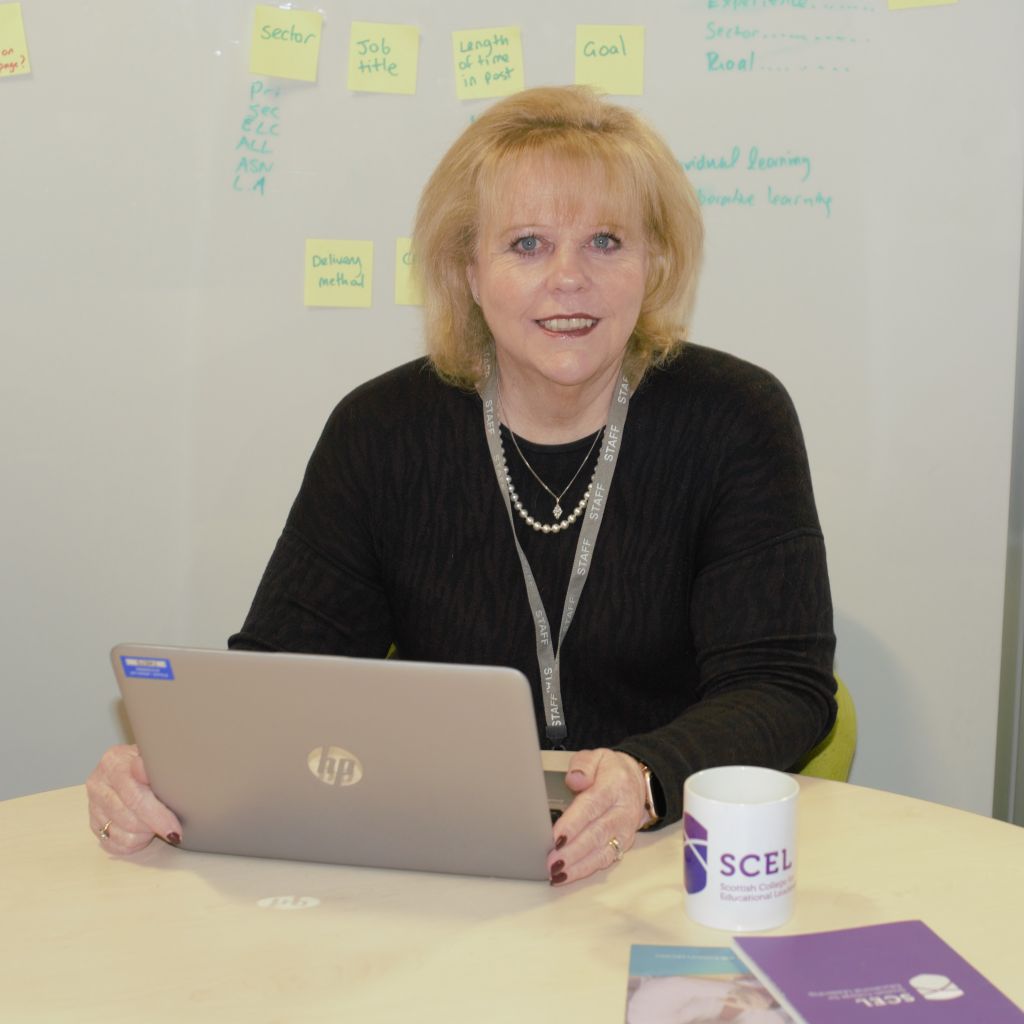International Events: Series 1 - All About Impact
The Covid pandemic has been a forceful influence on all aspects of our lives in so very many ways, not least on our own professional learning but also in Education Scotland’s Professional Learning and Leadership Team and our stance on the delivery of professional learning. Pausing our programmes provided us with the opportunity to revisit our work, re-examine our purpose, redesign our delivery.
As a team, we knew from our discussions with colleagues across the system that one of the greatest challenges for many people was a sense of isolation and a lack of self-efficacy in dealing with an event of this magnitude. We also heard that people has a real desire to connect with professional learning, but in a way which could be blended into their often rapidly changing days, in times of genuine uncertainty. As a team we tried to respond to these challenges in a number of ways, to connect people, to offer thinking space and to be flexible to meet the needs of practitioners, school and system leaders.
One such offering was the inception of the International series of events, where we have asked leading educationalists from around the world to engage with colleagues across Scotland.
This series offers a unique opportunity for our educators to engage with our guests in an almost intimate way, to examine published thinking, question the concepts and connect this reflection with our work in Scotland.
For our first series we were privileged to have three guests whose work was very much connected to some of the challenges we were facing, connected closely to each other and, most importantly, underpinned the thinking which is the bedrock of the work of our schools, effective learning and teaching.
'Instructional Leadership is when those in a leadership position focus on implementing practices that will increase student learning.'
Peter De Witt: Instructional Leadership, Creating Theory out of Practice
This first session not only explored our own development as leaders of learning but also highlighted the importance of a framework of instructional practices and the critical importance of an implementation strategy to support highly effective learning and teaching approaches.
'When we understand effective implementation practices, we build collective efficacy and work together to develop common understandings of learning concepts. That collective efficacy and those common understandings, will improve our teaching strategies, and have a positive impact on student learning.'
This thinking aligns so well with Jenni Donohoo’s work on collective efficacy.
'The strengths of collective efficacy beliefs affects how school staffs tackle difficult challenges. Collective beliefs about the staff’s efficacy to motivate and promote learning affect the types of learning environments created in schools and the teaching behaviours exhibited by staff. When a sense of collective efficacy is present, staffs maintain school environments in which students feel good about themselves. They also engage in more productive behaviours that support positive student outcomes.'
Jenni Donohoo: Collective Efficacy, How Educators’ Beliefs Impact Student Learning
Our second International Session with Jenni Donohoo explored the conditions and culture of collective efficacy which support and build a highly effective school which impacts on the learning of children and young people. Jenni’s work on the positive consequences of collective teacher efficacy looks at enhancing collective efficacy through professional learning and collaborative inquiry, providing school and system leaders with materials and protocols to implement change.
'Leadership that believes in the capacity of all teachers and all students to learn, to succeed and in the end to excel. We need the leadership that is unafraid to share the responsibility to make authentic learning happen. We need leadership that is willing to commit to creating optimal conditions that build a true learning culture in which everyone is a learner, everyone is learning how to share, to fail, to persevere and to celebrate success'.
Paul Bloomberg and Barbara Pitchford: Leading Impact Teams, Building a Culture of Efficacy
Our third session with Paul Bloomberg gave participants the opportunity to consider and connect the importance of instructional strategies and a culture of collective efficacy through the principles of Assessment for Learning to make a significant impact on how we lead school teams. Paul’s passion and belief is that every school has the extraordinary resources to improve and that what it takes to do this is leadership.
I hope that you can see from these little snippets from the work of Peter, Jenni and Paul, how closely aligned this thinking and work is to our empowerment agenda in Scotland. We are very grateful to these first three guests for setting up our International series with a strong focus on the impact of leadership in our schools and system.
I also hope that you will be able to participate in our future International Series. The recordings of this first series are available on our Systems Thinking page.
Paul will be taking a deeper look at the work of learning protocols in early 2021 and Jenni will be returning with Steven Katz for a closer look at Quality Implementation in January 2021.

